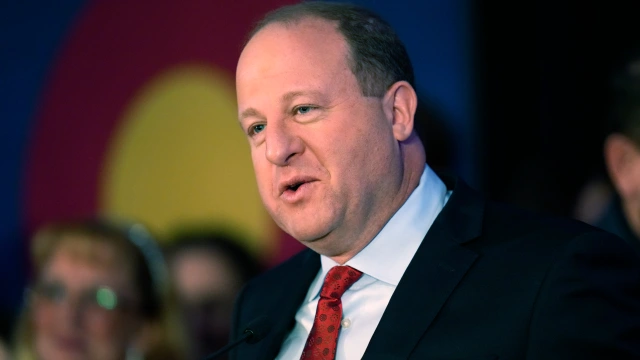Real Estate
Startups Are Looking To Fractionalize Real Estate Assets, But Should They? – Forbes

Startups are looking to fractionalize real estate assets to lower the barrier to entry in the … [+]
Investing in commercial real estate or vacation rental properties can be a consistent source of passive income and returns, not to mention growth and the potential liquidity you don’t get with owning your home. Yet the price of entry is often prohibitive to all but those who already have wealth. This was the puzzle Drew Sterrett wanted to solve in 2017, when he worked as an analyst at asset manager Tungsten Partners, focused on real estate. He spent all day looking at the potential investment returns as he poured over the numbers and helped the firm structure deals. He wanted in.
Sterrett believed he had the background needed to be successful. What he didn’t have was the capital required for a retail investor like him to get involved in the way he wanted. “Real estate is one of the largest wealth creators in the world, but it’s really been held off for the less than 1%, the 0.1% [of people], to invest side by side with institutional investors,” Sterrett tells Forbes One
If an asset was broken up, Sterrett realized, each tranche could be priced low enough to eliminate the financial hurdle, just like stock ownership. He cofounded LEX to do that. The New York-based startup acts as a securities broker to help existing owners of commercial buildings hold a public offering of shares for accredited and nonaccredited investors to buy and trade on LEX’s marketplace. “We are removing the cost of entry and many, or all, of the limitations,” he says. “We are now bringing [real estate investing] to the many and allowing them to gain access to a market they never thought they would be able to.”
LEX isn’t alone. The company joins a growing number of startups capitalizing on the concept of fractionalizing real estate assets. Each has its own strategy. Miami-based Here offers a marketplace of stakes into existing vacation rental properties. And Toronto-based Vesta Equity allows homeowners to tokenize and sell portions of their ownership as NFTs. Yet all claim the same mission of opening up the asset class to allow more access to its potential riches, and have the fees to create a great balance sheet. Market insiders and investors however, aren’t sure this strategy is the best idea for the market or the underlying users.
Clelia Warburg Peters, a longtime proptech investor and managing partner of Era Ventures questions whether the average investor is really prepared to tackle the nuances of the real estate asset class. She also wonders what problem these companies are really solving, as retail investors already have the ability to invest in real estate through real estate investment trusts (REITs) and many don’t. “The level of education in the public even around holding REITs is pretty low,” she tells Forbes. “This is literally exposure to a direct asset or a pooled vehicle of private assets, there is both education needed and risk.”
Market analysts, meanwhile, find this a dubious strategy in current market conditions. The pandemic-driven frenzy which drove up demand and lowered mortgage prices has started to cool, points out Gay Cororaton, a senior economist at the National Association of Realtors, who expects this to continue. If home ownership becomes more affordable, some potential customers may choose to purchase a full property, rather than invest in real estate assets. What’s more, fear around investors not knowing what to do may be overblown though, she adds. Mom and pop landlords maintain a lionshare of residential assets and many didn’t come to the industry with a real estate background.
On the commercial side, L.D. Salmanson, the CEO of real estate data and analytics startup Cherre, says it all depends on the asset. Warehouses and other industrial buildings including data centers have seen continued strong performance, he tells Forbes. But assets like retail and office buildings are just too up in the air right now to be a solid investment strategy. “Office is not doing well right now, it’s an open question whether that’s temporary or long term,” Salmanson says. “I can make the argument both ways.”
Yet the founders of both LEX and Here suggest their offerings aren’t any riskier than, say, downloading Robinhood and pouring money into stocks with no guidance, or backing early-stage startups on crowdfunding sites. Plus, the users of these startups aren’t stuck with the physical asset at the end of the day.
Here looks to avoid some of the risk by performing robust due diligence on the investment options on its platform, founder Corey Ashton Walters tells Forbes. While future performance isn’t guaranteed, the startup lists only existing vacation rentals that already produce 10% to 20% yearly booking yields. “We want to keep the wheels on the bus,” he says. “If an asset is doing well, they will continue to do well. Instead of one owner, there are hundreds of owners.” All assets on LEX were already producing a stable cash flow, according to Sterrett.
There’s also definitely a demand. When LEX officially launched in November, it had 10,000 potential members on its waiting list. And commercial property landlords are showing strong interest in working with the platform, too. Here launches this week with more than 20,000 members waiting to invest. Vesta Equity, currently only available only to accredited investors, plans to open its platform to nonaccredited investors within the next 12 months. Even before its February launch, Vesta Equity says it had hundreds on its waiting list and has since been approached by real estate developers interested in expanding Vesta’s offering as well.
All three real estate investing startups offer a new slate of options to the market. For LEX and Here, it’s opening a new avenue for retail investors looking to differentiate their assets. For Vesta Equity, cofounder Michael Carpentier says that the tokenized platform doesn’t just provide a new opportunity for investors, it gives homeowners a new strategy to gain liquidity without having to move.
“Imagine if you had $100,000 of cash in your wallet, nice you’ve got that, but you can’t use it, you have to borrow against it,” he says about the current system.
While all these startups have users and venture backers, it’s too early to see if their mission statements outweigh the risks.
Real Estate
Transforming the Real Estate World: The Story of Alberto Conesa

In the fast-paced world of real estate, where competition is fierce and opportunities are fleeting, there emerges a figure who has revolutionized the way real estate agents and agencies operate and thrive. Alberto Conesa, a passionate visionary with a clear mission, has transformed the lives of thousands of real estate professionals in Europe, the United States, and Latin America over the past four years. His company, BrandingCenter® – Advanced Real Estate Training, has been the source of inspiration and knowledge behind this revolution.
An Impressive Journey
Alberto Conesa is no stranger to the real estate industry. His commitment and dedication to excellence in this field have led him to work with over 5000 agencies across three continents, creating systems and strategies that not only boost revenue but also generate multiple sources of income. His impact extends far beyond geographical borders, and his story is a source of inspiration for all those looking to excel in this competitive sector.
From Author to Mentor: A Leader in Real Estate Education
Alberto Conesa is the author of two successful books that have become benchmarks in the real estate industry: «Master, Real Estate Agents Who Build a High-Revenue Mind» and «Real Estate Branding, Awaken the Titan.» These works have not only been widely praised but have also provided real estate agents with the tools and knowledge needed to excel in an ever-evolving market.
Beyond writing, Alberto has established himself as the most disruptive trainer in the Spanish-speaking real estate sector.
He offers his services as a mentor and consultant to agencies and real estate agents, sharing his deep knowledge and vast experience to guide them toward success. His approach goes beyond offering theoretical advice; it is based on field-tested strategies, ensuring tangible and sustainable results.
Well-Deserved Recognition
Alberto Conesa achievements speak for themselves and have been widely recognized by the real estate community and beyond. In 2020, he received the prestigious European Award for Technology and Innovation from the European Institute of Technology and Innovation (EITI), a testament to his ongoing quest for innovative solutions in the real estate world.
In 2021, his commitment and business talent were once again rewarded with the EUROPEAN AWARD for Business Talent, an accolade that recognizes outstanding leaders who make a significant contribution to the development of the real estate and business sectors.
A Global Vision for the Future
With an ambitious futuristic vision, Alberto Conesa aspires to extend his influence and knowledge to real estate agencies and agents worldwide. His goal is clear: to elevate the global real estate industry to new heights. His proven strategies are applicable in any context and market, and his passion for transforming lives and businesses is contagious.
To stay updated on Alberto Conesa’s latest insights and tips, you can follow him on social media under the handle @AlbertoConesaOfficial. Furthermore, for more information about his work and access to valuable resources, we invite you to visit his website at www.BrandingCenter.com.
Alberto Conesa is a name that resonates strongly in the real estate industry. His legacy is a testament to how passion, dedication, and knowledge can transform the real estate world and propel it to new heights of success. His story continues to be written, and his impact is only growing.
Real Estate
Colorado Gov. Polis signs new batch of gun laws

Colorado Gov. Jared Polis (D) signed a new batch of gun legislation into law on Friday, several months after a deadly mass shooting at an LGBTQ nightclub in Colorado Springs.
The laws establish a three-day waiting period to obtain a firearm, raise the minimum age to purchase firearms to 21, make it easier to sue gun manufacturers and expand the state’s red flag law.
“Coloradans deserve to be safe in our communities, in our schools, our grocery stores, nightclubs and everywhere in between,” Polis said at the bill signing, according to The Colorado Sun.
Politics & Inclusion dinner a night to celebrate journalists of color
Pro-DeSantis PAC positions Florida governor as successor to Trump
Five people were killed and 17 were injured in November when a 22-year-old gunman opened fire at Club Q, an LGBTQ nightclub in Colorado Springs.
A proposed assault weapons ban failed to make it to the governor’s desk alongside the other gun control legislation after the House Judiciary Committee voted last week to postpone consideration of the bill indefinitely.
However, legislation to ban the sale and manufacture of so-called “ghost guns,” or unserialized firearms, remains under consideration in the Colorado state Senate.
Real Estate
2 Cases Filed Against Wrestling Body Chief, 1 Of Them For Harassing Minor

he Delhi Police, which functions under Amit Shah’s Home Ministry, filed the two first information reports (FIRs) hours after the Supreme Court ordered them to do so.
The Delhi Police have filed two cases against Wrestling Federation of India (WFI) chief Brij Bhushan Sharan Singh after the country’s top wrestlers made allegations of sexual harassment against him.
The Delhi Police, which functions under Amit Shah’s Home Ministry, filed the two first information reports (FIRs) hours after the Supreme Court ordered them to do so, amid protests at Delhi’s Jantar Mantar by wrestlers including Bajrang Punia, Sakshi Malik and Vinesh Phogat.
One of the FIRs is over a complaint of sexual harassment by a minor, filed under the stringent Protection of Children from Sexual Offences (POCSO) Act, which gives no scope for bail.
The Delhi Police will pursue the case actively, sources said.
Mr Singh, who is also a BJP MP, welcomed the Supreme Court’s order to file the police case into allegations of sexual harassment against him.
Mr Singh told reporters the wrestlers should have waited for the report of a committee that was tasked to look into the matter before they decided to sit on a protest in Delhi’s Jantar Mantar.
«I am happy with the judiciary’s decision. The Delhi Police will investigate the allegations and I am ready to cooperate with them in every possible way. No one is bigger than the judiciary in this country. The order has come to file an FIR (first information report). The government had also said it had no objection to filing an FIR. I am not larger than the Supreme Court. I welcome the order,» Mr Singh told reporters.
-

 Leadership2 años ago
Leadership2 años agoBrain Behind Multi-Million Dollar Beauty Brands Launches Skin Care Line for Women 50+
-

 Innovation1 año ago
Innovation1 año agoMehdi Manoochehrzadeh: A Visionary Language Educator Transforming English Learning with Puzzling Method
-

 Lifestyle2 años ago
Lifestyle2 años agoDuty Free Dynamics adds yoga brand Manduka to its lifestyle portfolio
-

 Innovation2 años ago
Innovation2 años agoMelinda Herron Created a Niche for Marketing Men’s Grooming Products, Launches 103 Collection in National Retail
-

 Real Estate3 años ago
Real Estate3 años ago30 Israelis make Forbes 2022 billionaires list, led by Miriam Adelson
-

 Innovation3 años ago
Innovation3 años ago“The Millionaire Maker”
-

 Innovation2 años ago
Innovation2 años ago5 Innovative Mother’s Day Gifts for the Beauty Lover in Your Life
-

 Small Business3 años ago
Small Business3 años agoThree Questions Small Business Owners Should Ask In Creating A Workplace Culture – Forbes
